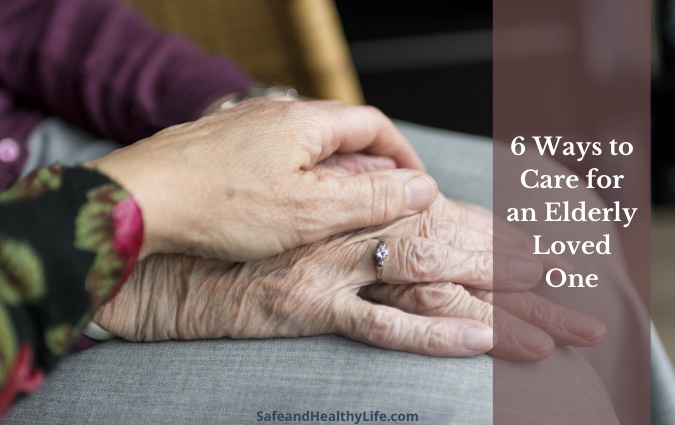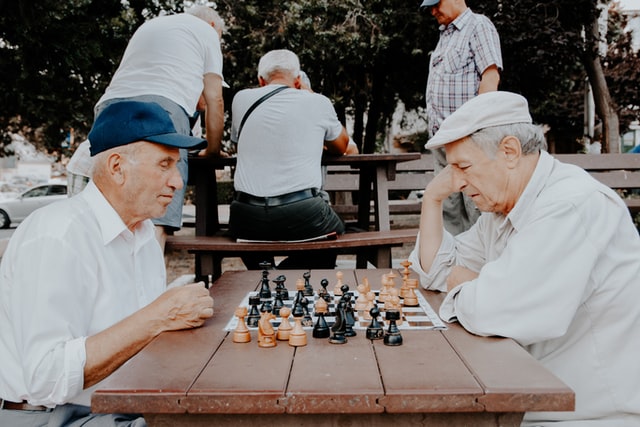
Family is of prime importance among the people of the Northern Mariana Islands.
Many adult children welcome their parents or other relatives to live with them in their old age, which isn’t so surprising since many Mariana Islanders consider this as a gesture of gratitude for the people who raised them and have shaped their lives.
If this is your situation, you may be more than happy to house your loved ones in their twilight years. But even then, there are certain challenges that come with caring for the elderly.
If you want the best quality of life for your aging loved ones, these challenges are best prepared ahead of time.
What are some of the most practical tips for taking care of your elderly parents or relatives?
Here are some that will ensure that they lead safe, comfortable, and meaningful lives in your home.
1. Assess Your Caregiving Plan for Them

Photo by Mohamed_Hassan from Pixabay
If you have agreed to be the chief caretaker of your elderly loved one, then there’s a lot of planning for you to do.
Aspects of their care that you will need to attend regularly are their medical needs, your finances, and the suitability of your home. Caring for them is a long-term decision, and it will require assessing their needs on a weekly, daily, and monthly basis.
Once you’ve made the decision, remember that the burden doesn’t have to fall squarely on you. Even if the primary responsibilities won’t fall on your adult siblings or relatives, you can still tap them for support.
This can be in the form of monetary support, volunteering transportation or supply of basic needs, and the like.
When taking care of your elderly loved one becomes exhausting, it’s important to ask for the help of others. That’s what bolsters the sense of family and community among all of you.
2. Find Healthcare Services You Can Depend On
Your loved one getting sick or injured more often is an inevitable reality that comes with their age. With that in mind, you should be seeking adequate health care services in CNMI.
Your health care providers should help you address any physical ailments your loved one has, or diagnose new conditions that are a result of aging.
You can also turn to health care services to hire a nurse. Both you and your loved one will benefit from the extra knowledge and support that a professional caregiver can impart.
3. Make Your Living Space Safe for Your Elderly Loved Ones

Photo by Alex Boyd from Unsplash
If it’s been agreed upon that your loved one will live in your house, you have to make sure that the space is safe for them. In their old age, their vision, memory, fine motor skills, and mobility will have deteriorated.
Tasks that are easy for children and adults, like climbing up and down the stairs, will be difficult for a geriatric resident.
Before your parent or relative comes to you, put in the extra effort to “elderly-proof” your house. Consider installing safety rails, ramps, or slip-proof tiles.
Put slip-proof bath mats and rugs in the bathroom they will use to prevent injuries from slipping.
Ask your children not to leave toys or other objects on the floor. Encourage everyone in the house to help your elderly loved one if they have trouble walking or lifting things.
4. Keep Their Memory Sharp and Teach Them New Skills
It’s also important to do tasks with your elderly loved ones that will keep them mentally sharp and agile.
See if they are willing to learn new skills with you, such as how to use a new gadget. This is something they can use for their own purposes, like reading the news online or contacting their friends on social media.
In most cases, a simple conversation will do a lot to bolster memory and mental agility. Make it a daily habit to talk to them and to help them remember what the world around them is like.
5. Make Time for Bonding and Socialization

Photo by Vlad Sargu from Unsplash
In old age, people often experience loneliness, sadness, anxiety, and isolation. These feelings can affect their appetite, sleep regimen, and their level of comfort. It’s in everyone’s best interest to provide your loved one with opportunities to bond, socialize, and feel like they are one with the world.
There are many things that you, your children, and your relatives can do to bond with senior members of your family. You can play cards, chess, bingo, or any other game that they like together.
You can do regular video calls to keep in touch with family members overseas. Or, you can teach your elderly loved ones to set up voice or video calls on their own so that they can contact their peers. This will do a lot to keep your loved one emotionally healthy and in good spirits.
6. Recognize Their Agency and Their Independence
Lastly, don’t forget that “old” doesn’t mean “helpless.” Even though they may not verbalize it, your loved one may feel frustrated about all the restrictions they have in their old age. They may also worry about being a burden on you, and will attempt to keep any pains or distresses to themselves.
Acknowledge how important it is to your loved one to have agency and to still do things for themselves. That can help you determine the perfect balance of when to step in, versus when to leave them be.
Try to resist ordering them around excessively, or to wait on them hand and foot if it’s not needed. Finally, let them know that they can be honest with you about their feelings so that you can work out a solution together.
This is sure to improve your relationship with them and to preserve their sense of identity—something that they are likely to value more in their old age.
Again, taking care of an elderly loved one is not without its difficulties. But your initiative and compassion are a special blessing to them.
Here’s to hoping that they stay healthy, comfortable, and fulfilled in their golden years with you.
About The Author:
Carla Smith is the founder of Safe and Healthy Life. Her main objective is to provide informative articles, reviews, and analysis of health & fitness topics to her readers that help them to make their life easier and happier. Connect with her on Twitter.




